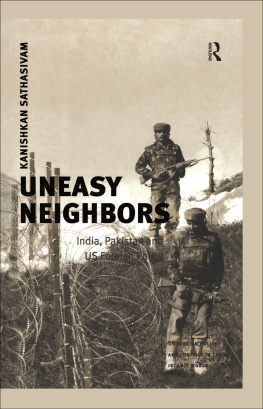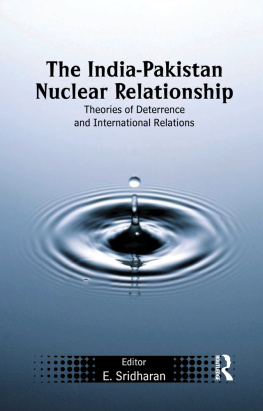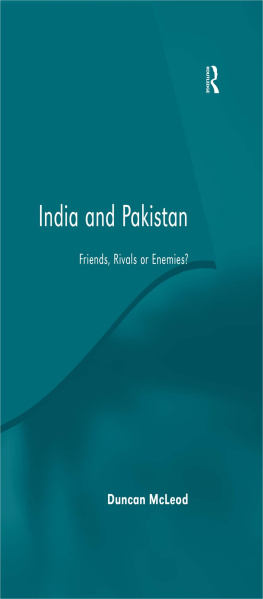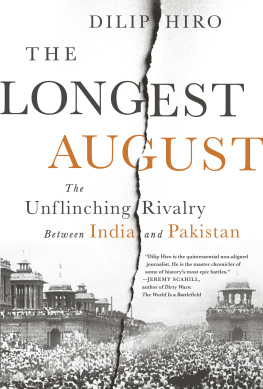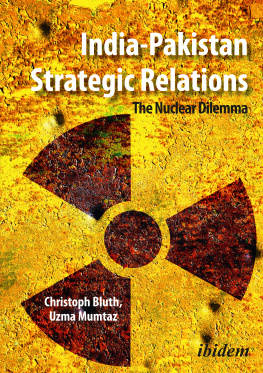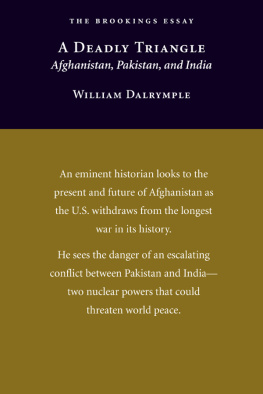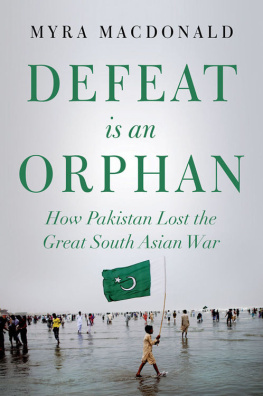UNEASY NEIGHBORS
US Foreign Policy and Conflict in the Islamic World
Series Editors:
Tom Lansford
The University of Southern Mississippi-Gulf Coast, USA
Jack Kalpakian
Al-Akhawayn University, Morocco
The proliferation of an anti-US ideology among radicalized Islamic groups has emerged as one of the most significant security concerns for the United States and contemporary global relations in the wake of the end of the Cold War. The terrorist attacks of September 11, 2001 demonstrated the danger posed by Islamic extremists to US domestic and foreign interests. Through a wealth of case studies this new series examines the role that US foreign policy has played in exacerbating or ameliorating hostilities among and within Muslim nations as a means of exploring the rise in tension between some Islamic groups and the West. The series provides an interdisciplinary framework of analysis which, transcending traditional, narrow modes of inquiry, permits a comprehensive examination of US foreign policy in the context of the Islamic world.
Other titles in the series
Crossing the Rubicon
Ronald Reagan and US Policy in the Middle East
Nicholas Laham
ISBN 0 7546 3961 4
Strategic Preemption
US Foreign Policy and the Second Iraq War
Robert J. Pauly, Jr. and Tom Lansford
ISBN 0 7546 4357 3 (Pbk)
ISBN 0 7546 3975 4 (Hbk)
US Foreign Policy and the Persian Gulf
Safeguarding American Interests through Selective Multilateralism
Robert J. Pauly, Jr
ISBN 0 7546 3533 3
First published 2005 by Ashgate Publishing
Published 2017 by Routledge
2 Park Square, Milton Park, Abingdon, Oxon 0X14 4RN
711 Third Avenue, New York, NY 10017, USA
Routledge is an imprint of the Taylor & Francis Group, an informa business
Copyright Kanishkan Sathasivam 2005
Kanishkan Sathasivam has asserted his right under the Copyright, Designs and Patents Act, 1988, to be identified as the author of this work.
All rights reserved. No part of this book may be reprinted or reproduced or utilised in any form or by any electronic, mechanical, or other means, now known or hereafter invented, including photocopying and recording, or in any information storage or retrieval system, without permission in writing from the publishers.
Notice:
Product or corporate names may be trademarks or registered trademarks, and are used only for identification and explanation without intent to infringe.
British Library Cataloguing in Publication Data
Sathasivam, Kanishkan
Uneasy neighbors: India, Pakistan and US foreign policy. -
(US foreign policy and conflict in the Islamic world)
1. United States - Foreign relations - India 2. United States
- Foreign relations - Pakistan 3. India - Foreign relations
- Pakistan 4. Pakistan - Foreign relations - India 5. India - Foreign relations - United States 6. Pakistan - Foreign relations - United States 7. United States - Foreign relations - 1945-1989 8. United States - Foreign relations 1989- 9. India - Foreign relations - 1947-1984 10. India Foreign relations- 1984-
I.Title
327.73054
Library of Congress Cataloging-in-Publication Data
Sathasivam, Kanishkan.
Uneasy neighbors: India, Pakistan and US foreign policy / by Kanishkan Sathasivam.
p. cm. - (US foreign policy and conflict in the Islamic world)
Includes bibliographical references and index.
ISBN 0-7546-3762-X
1. India-Foreign relations-Pakistan. 2. Pakistan-Foreign relations-India. 3. United States-Foreign relations-South Asia 4. South Asia-Foreign relations-United States. I. Title. II. Series: US foreign policy and conflict in the Islamic world series.
DS450.P18S28 2005
327.73054-dc22
2005000464
ISBN 13: 978-0-7546-3762-2 (hbk)
CONTENTS
When I was approached by one of the editors of the series to which this monograph belongs to write a volume on South Asia and US foreign policy, it would be an understatement to say that I was ecstatic. To be asked to contribute a book to such an important and timely series was in itself an honor. However, my elation was especially motivated by my longstanding concern that far too often scholars chose toinappropriately, in my viewdisregard South Asia generally, and India and Pakistan in particular, in their assessments and analyses of post-World War Two US foreign policy. Thus it was that in May 1998, in the aftermath of the Indian and Pakistani nuclear tests, political pundits in the West wrung their hands in dismay as they wondered why the academic literature was so sparse with respect to US foreign policy toward these two South Asian rivals. To be fair, it must be noted that indeed there have been several brilliant books written on this subject over the years, and many of them are to be found extensively cited throughout this volume. Nevertheless, I maintain that rarely have India and Pakistan been included, other than in tangential ways, in any systematic studies of postwar American foreign policy.
Although Western scholarship may have neglected India and Pakistan during the years of the Cold War, numerous books assessing US foreign policy toward India and Pakistan have been produced by scholars from those two countries. These studies provide invaluable insight into the thinking in India and Pakistan vis-a-vis American foreign policy, but the vast majority of them are limited to focusing on just one or the other of the two states, India or Pakistan, depending on the national origin of the scholar undertaking the study. A key aspect of this book is that it reviews and analyzes the two bilateral relationships (US-India and US-Pakistan) jointly in a comprehensive manner even while maintaining the separateness of the two bilateral relationships. This approach contrasts with that of many other books on this general subject which either address one of the two bilateral relationships exclusively, or treat the relationships as being trilateralan approach which scholars and commentators from both India and Pakistan typically reject, because for them such an approach means that there can be no speaking of one of the two countries without also concurrently speaking of the other. In this book, I treat India and Pakistan as separate, sovereign entities that are not quite joined at the hip, so to speak, each with its own set of national interests and geopolitical aspirations that may or may not be influenced by those of the other.
This monograph also takes the view that there has been a fundamental transformation in the context of US foreign policy toward India and Pakistan as a result of the end of the Cold War. This fundamental transformation has been significantly augmented by three additional recent events: (i) the advent of a global political economy, particularly with respect to the globalization of finance, trade and production, (ii) the expansion of the club of nuclear-armed states to include India and Pakistan, and (iii) the events of 11 September 2001 and the subsequent US-led global war on terror. Taken together, these events have undeniably produced a seismic shift in the importance of both India and Pakistan to US national interests and foreign policy.
Essentially, this monograph provides the reader with a comprehensive study of the enduring rivalry between India and Pakistanprimarily over the contested territory of Kashmir, and of US foreign policy toward the two rivals. This task is undertaken in six substantive chapters. In the first chapter, which serves as an introduction, the monograph details the history of Partitionthe critical event in the modern history of the subcontinent that is the root of the Kashmir conflict and the central source of half a century of animosity and bitterness between the two neighbors. Partition represented a two states solution to the decolonization of a geographically unified but communally divided land, a solution that was very much favored by the Muslim minority of the subcontinent but intensely opposed by the subcontinents Hindu majority.

